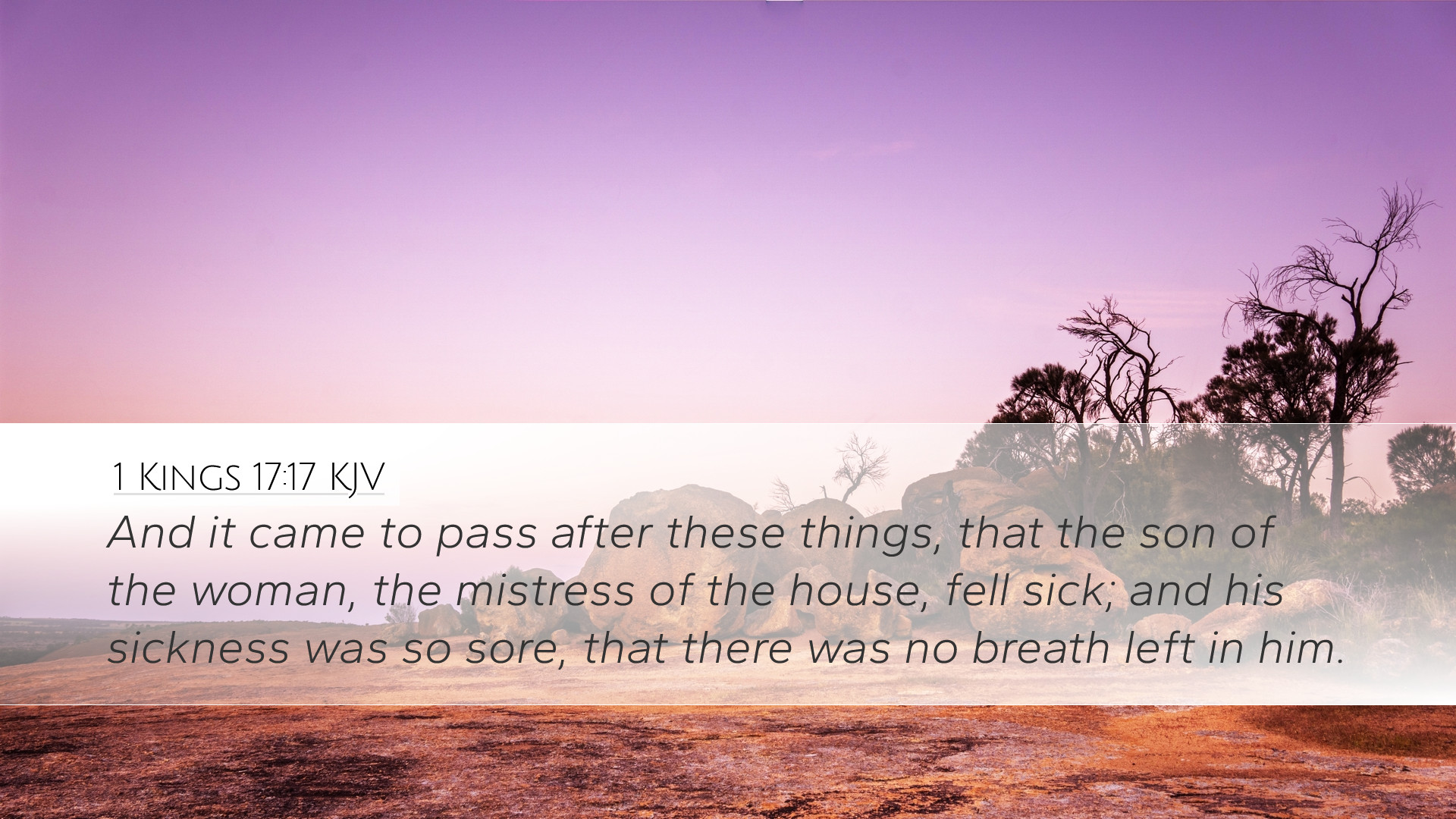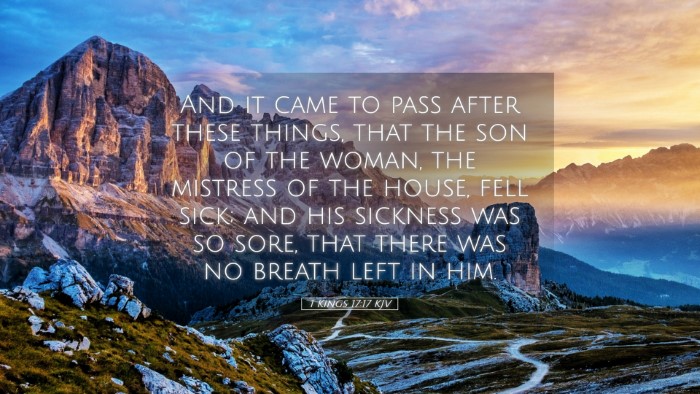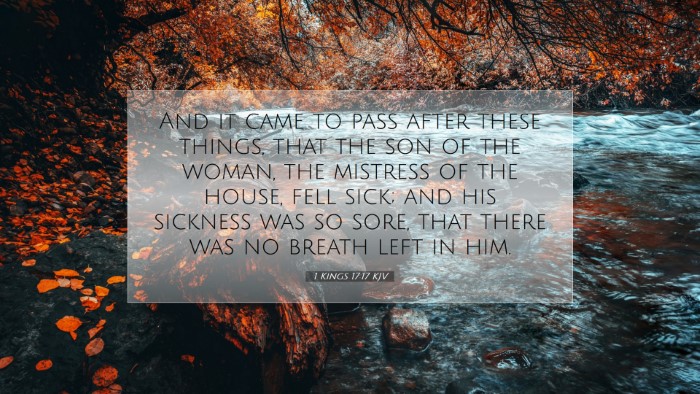Introduction
This verse highlights a significant moment in the narrative of Elijah, the prophet of God, who was sent to dwell with a widow in Zarephath during a time of severe drought. The event serves as a precursor to a remarkable demonstration of God's power, mercy, and the prophet's intercession.
Contextual Analysis
The surrounding context of this chapter is crucial for understanding its significance. Prior to this verse, Elijah has been sustained by God through the provision of food and water at the brook Cherith, followed by his sojourn with the widow, where God miraculously supplies flour and oil (1 Kings 17:14). This moment of blessing is soon overshadowed by the tragic illness of the widow's son, marking a pivotal turn in the narrative.
The Sickness of the Widow's Son
Matthew Henry explains that the sickness of the child serves to test not only the faith of the mother but also the power of Elijah's prophetic ministry. The phrase "there was no breath left in him" indicates that the child had died, which introduces profound themes of death, loss, and the desperation of the mother. Henry notes that the affliction brings forth not merely physical suffering but spiritual turmoil, revealing the fragility of human life and the need for divine intervention.
The Widow's Grief and Accusation
Albert Barnes comments on the emotional turmoil experienced by the widow. Upon learning of her son's death, she confronts Elijah, questioning whether he has come to bring her sin to remembrance (1 Kings 17:18). This confrontation highlights the deep struggles that arise when faith is tested by suffering. The widow’s lament reflects a common biblical theme: the temptation to attribute personal suffering to divine retribution. It serves to illustrate the profound desperation felt during tragedy when human understanding fails to reconcile the complexities of suffering with faith in a good God.
Elijah's Response
Elijah's reaction to the widow's grief is both sensitive and assertive. He does not dismiss her anguish but rather acknowledges the depth of her pain. In the face of death, Elijah takes the child, and his actions reflect a profound sense of intercession. Adam Clarke emphasizes that Elijah's cry to the Lord demonstrates the prophet's faith amidst despair. In calling upon God, Elijah embodies the hope that lies in divine power to conquer death and restore life. This moment exemplifies the intercessory role of the believer and the necessity of seeking divine intervention in crisis.
The Theological Implications
This verse encapsulates important theological themes such as the character of God as a nurturer and sustainer of life, the nature of faith, and the role of suffering in the life of believers. The widow's experience is not just personal but reflects a broader narrative of God's faithfulness amid human suffering. Henry asserts that God allows trials to deepen reliance upon Him, and the resurrection of the widow's son later in the chapter (1 Kings 17:22) serves as a powerful testament to God's sovereignty over death.
Symbolism of Life and Death
In the broader biblical narrative, the themes of life, death, and resurrection resonate deeply. The widow's son symbolizes humanity's plight: subject to sin and death, yet ever in need of divine mercy. The subsequent resurrection raises profound questions about life after death and God's ultimate plan for redemption. This act foreshadows the later miracles of Jesus, who came to restore life in its fullest sense. Barnes ties this moment back to the hope that exists in Christ, emphasizing that God is mindful of human suffering and engages with it profoundly.
Application for Believers
The events surrounding 1 Kings 17:17 provide followers of Christ with several points of application:
- Suffering and Faith: Believers are encouraged to bring their grief and questions before God. The widow’s encounter with Elijah models how God meets us in our deepest anguish.
- Intercessory Prayer: The story invites believers to take up the mantle of prayer intercession, recognizing the power of prayer in the face of challenges.
- Hope Amidst Trials: Just as Elijah prayed for the widow's son, Christians are reminded that hope exists even when circumstances seem dire. God's ability to resurrect, both physically and spiritually, remains paramount.
- Understanding God's Character: This passage is a reminder of God's intimate knowledge of our suffering and His desire to intervene in our pain, revealing His mercy and care.
Conclusion
1 Kings 17:17 serves as a powerful reminder of the intertwining of faith and suffering. There is no question that believers will encounter moments of intense sorrow and hardship. Yet, as seen in this narrative, such moments often pave the way for divine encounters and revelation of God's faithfulness. The widow's story is a testament to the transformative power of God's intervention and the hope that can be found even in the darkest times.


